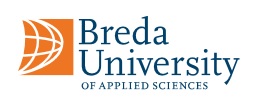BBA Tourism Management, English Track – Breda University of Applied Sciences
Breda, Netherlands
Reviewed by NVAO
- Valid from
- 31-10-2014
- Valid until
- 31-12-2018
Contact information
- Institution
- NHTV Breda University of Applied Sciences
- Website
- http://goo.gl/IvRns2
- Country
- Netherlands
Assessment report
NHTV-BK-Internationalisering-febr-2014-1Executive summary
The BBA programme Tourism Management is part of the Academy for Tourism of NHTV Breda university of applied sciences. The programme consists of two tracks: a Dutch track and an English track. In both tracks internationalisation is part of the programme/courses. The panel assess the English track as good and the Dutch track as satisfactory.
Standard 1
In the vision of the BBA Tourism Management the programme aims at students to engage with international business, to get cross-cultural understanding and to have language abilities in a business context. The panel is satisfied with the vision as formulated by the programme and considers that with the six objectives the programme sets interesting goals for realising and proving an international orientation. The panel concludes that although the vision is not yet explicitly shared by all stakeholders, there is a shared feeling of what internationalisation means for the programme.
The panel advises the programme to integrate the vision and the objectives more clearly into the regular policy documents so that the content of the documentation and appearance of internationalisation becomes more consistent. The panel equally advises that the path towards more systematic evaluations (e.g. by means of IMPI) and improvement activities is continued.
The panel assesses Standard 1 for both tracks as satisfactory.
Standard 2
The international and intercultural learning outcomes are integrated in the generic learning outcomes of the BBA of Tourism Management. The operationalization and assessment differs between the English and the Dutch track. The programme can guarantee that all students achieve the required international and intercultural learning outcomes, but in the English track the knowledge and experience of the student goes deeper and further. The panel recommends the programme to be clearer on the differences between the two tracks and the way internationalisation is operationalized in each track. The programme uses suitable methods for measuring the achievement of the learning outcomes.
The programme collects data from several surveys on how alumni evaluate the international orientation of the courses. The panel agrees with the programme that the results are rather general; more in-depth research could provide the programme with more appropriate information.
The panel assesses Standard 2 for the English track as good and for the Dutch track as satisfactory.
Standard 3
The panel has seen proof that in both the Dutch and the English track the curriculum enables students to achieve the international and intercultural learning outcomes. Projects, field trips, placements are all performed in an international context, either in the Netherlands or abroad. The way in which the concept of the International Classroom is being put into practice in the English track is exemplary according to the panel. This environment ensures the achievement of international and intercultural learning outcomes in a natural but very effective way. Although in the Dutch track it may be possible for students not to participate in international exchanges, they still are confronted with international and intercultural issues throughout the programme and the programme has well thought-through alternatives for mobility, such as a specific module in which the touristic assets of Amsterdam are taken as a well-suited setting.
The panel assesses Standard 3 for the English track as good and for the Dutch track as satisfactory.
Assessment Standard 4
The panel is pleased with the lecturers and the opportunities for them to develop and expand their knowledge and skills. The composition of the staff is such that almost a quarter has an international background. However, these lecturers teach mainly in the English track. In both tracks more than half of the lecturers have international experience. The panel is convinced that among the lecturers there are enough international experiences, intercultural competences and language skills to fulfill the requirements for an international environment where students can achieve the international and intercultural learning outcomes.
The panel assesses Standard 4 for the English track as good and for the Dutch track as satisfactory.
Standard 5
The group composition of the English track guarantees an international setting where students can achieve the intended international learning outcomes. The numerous experiences abroad in particular offer students ample opportunities to experience how international tourism businesses operate, what cultural differences are and to use their foreign languages.
Although in the Dutch track students are required to take the same load of foreign languages and have experiences with international tourism business as students in the English track, it does not offer all the advantages of the English track. The Dutch track makes good use of the differences in socio-cultural backgrounds of the students to make them experience cultural differences.
The International Office is there for all students who come to the Netherlands or who go abroad. The many years of experience in this office guarantees a high-quality service to the students.
The panel assesses Standard 5 for the English track as good and for the Dutch track as satisfactory.